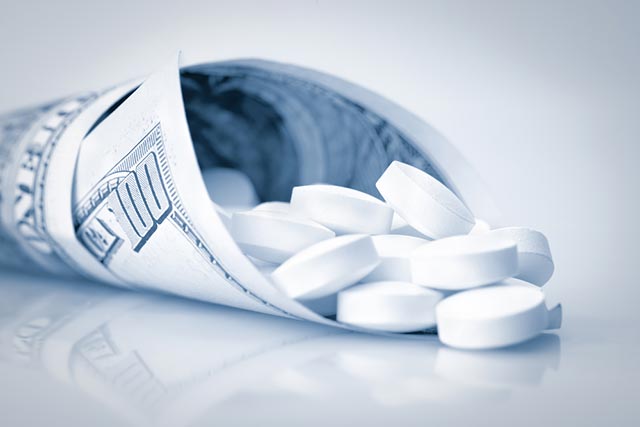
Support justice-driven, accurate and transparent news — make a quick donation to Truthout today!
The Obama administration is sponsoring a forum this week on the problem of high drug prices. The purpose is presumably to express concern about a rapidly growing problem for both people in the United States and around the world. It seems likely that the point is to quite literally express concern, as opposed to taking substantive steps towards addressing an enormous problem that not only takes an economic toll, but threatens people’s health and lives.
The reasons for skepticism are obvious. First and foremost, the Obama administration has placed higher drug prices at the center of its trade agenda. As was widely reported, the last major sticking point in reaching an agreement on the Trans-Pacific Partnership (TPP) was the Obama administration’s insistence on longer periods for maintaining the exclusivity on test data for biosimilar drugs.
This exclusivity means a monopoly period in which drug companies can charge high prices because there are no competitors. The Obama administration went to the mat for the pharmaceutical industry on this issue, putting aside concerns in other areas. For example, the pursuit of the pharmaceutical industry’s agenda meant that currency management – which has led to the huge US trade deficit and the loss of millions of manufacturing jobs – was not an item addressed in the TPP.
In addition to the administration’s willingness to do the pharmaceutical industry’s bidding, the class of excluded characters also indicates a lack of seriousness on this issue. There are a number of groups that have been working for decades to increase the accessibility of drugs around the world, most notably Doctors Without Borders. It seems that none of the representatives of these groups will be present at the forum.
There also have been many academics who have been working to develop alternative systems of research financing so that drugs could be sold in a free market without government granted monopolies, like patent protection and data exclusivity. The most notable person in this group is Joe Stiglitz, the Nobel Laureate, who also was not on the guest list.
Any honest discussion of high drug prices should include some consideration of alternative financing mechanisms. After all, fans of free trade everywhere know that a 10 or 20 percent tariff on clothes or cars is bad news. Such tariffs lead to economic waste and encourage corruption, as is explained in the economics textbooks.
Patent monopolies typically raise the price of drugs by 10 or even 100 times the free market price. This is equivalent to tariffs of 1,000 or 10,000 percent. Everything the economics textbooks say about 10 or 20 percent tariffs applies to the protection given drug companies, except the impact is hugely greater since the size of the effective tariff is so much larger. How could a serious forum on drug prices not deal with this fundamental issue?
There are alternative financing mechanisms to patent monopoly already in existence. The government spends more than $30 billion a year funding biomedical research through the National Institutes of Health. Everyone familiar with the output from this research, especially the drug companies, agrees that this is money very well spent. This funding certainly could be expanded.
There is also much research financed by private foundations and charities. Working with other organizations and drug companies, Doctors Without Borders has developed a number of new drugs and treatments. This research has benefited hundreds of millions of people, but cost less than one tenth of what the pharmaceutical industry claims it costs them to develop a single drug.
A terrifying moment. We appeal for your support.
In the last weeks, we have witnessed an authoritarian assault on communities in Minnesota and across the nation.
The need for truthful, grassroots reporting is urgent at this cataclysmic historical moment. Yet, Trump-aligned billionaires and other allies have taken over many legacy media outlets — the culmination of a decades-long campaign to place control of the narrative into the hands of the political right.
We refuse to let Trump’s blatant propaganda machine go unchecked. Untethered to corporate ownership or advertisers, Truthout remains fearless in our reporting and our determination to use journalism as a tool for justice.
But we need your help just to fund our basic expenses. Over 80 percent of Truthout’s funding comes from small individual donations from our community of readers, and over a third of our total budget is supported by recurring monthly donors.
Truthout has launched a fundraiser to add 340 new monthly donors in the next 5 days. Whether you can make a small monthly donation or a larger one-time gift, Truthout only works with your support.